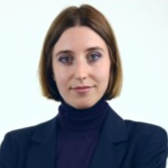Agenda
Please note: all timings are listed in CET, to view start times in your local time zone, please click here.
-
Registration and coffee
-
Staying ahead of PFAS regulation: PFAS tracker demo
-
Welcome and introduction by the moderator
-
Keynote: PFAS: A major risk factor for European water resilience
- Session 1: The latest European updates
-
European Commission overview
- Status of the various environmental legislations on PFAS
- Status of the chemicals-related legislation on PFAS – in the EU and globally
- Update on policy-related topics
-
Evaluation of the uPFAS restriction proposal in the ECHA committees
- State of play
- Next steps
- Consultation on the SEAC draft opinion
-
UK regulatory developments
VIRTUAL PRESENTATION
- Regulatory and policy actions from Defra, including the Environmental Improvement Plan
- PFAS within the UK REACH work programme
.png) Edward Latter
Chemicals Policy Team Leader, Department for Environment, Food and Rural Affairs (Defra), UK
Edward Latter
Chemicals Policy Team Leader, Department for Environment, Food and Rural Affairs (Defra), UK -
Q&A
-
Refreshment break and networking
-
PFAS and the recycling sector: Enabling a clean circular economy
- The PFAS challenge in recycling: Sources, prevalence and implications for recyclate quality and marketability
- Regulatory dilemmas: How current and proposed restrictions may clash with circularity goals – what’s missing?
- The way forward: Need for monitoring technologies, risk-based approach and harmonized enforcement to enable both safe and circular systems
-
Implications of PFAS exclusions from insurance policy coverage in the EU
- Expanding EU PFAS litigation
- PFAS exclusions from liability policies
- Lloyd’s market association PFAS exclusions – LMA5595 and LMA5596 – pave the way
- The German Insurance Association (GDV) model clause and other developments
-
Q&A
-
Panel discussion on societal and environmental costs of PFAS
-
Lunch break and networking
- Session 2: Sectoral perspectives, solutions and substitutions
-
The PFAS ban and the challenges for the automotive industry
- How is the automotive industry affected by PFAS?
- What are the challenges, especially for automotive original equipment manufacturers (OEMs)?
-
Case study: How Coop Denmark led national change on PFAS
- Early action from 2014
- Collaboration with scientists and authorities
- Targeting food contact materials, identifying risks and implementing safer alternatives
- Influencing national policy: Danish government followed Coop’s lead
- Communicating PFAS-free is difficult, but consumers deserve transparency
- PFAS contamination is widespread
- testing and documentation - high demand for scientific verification
- Beyond compliance: tackling unregulated chemicals of concern ahead of legislation
-
Road mapping towards a PFAS-free portfolio for coating technologies
- SME perspective on the challenges of identifying and replacing PFAS in the product portfolio
- Impact on new product approval processes and meeting market demands
- Future solutions for the eyewear industry and beyond
-
Q&A
-
Refreshment break and networking
-
Cooling and heating within (planetary) boundaries: How fair policy can reward PFAS-free industry innovators
- The cooling and heating dilemma: a human need with constraints
- The proven solution: following the lead of established innovators
- The policy and regulatory imperative: reward innovation, not stagnation
-
PFAS and non-REACH regulated substances: Issues with plant protection products and biocides
- Active substances meeting the definition of PFAS in plant protection and biocides
- Which approach for their risk assessment/risk management?
- Future possible scenarios
-
AI tool to help speed up PFAS phase-out
- The future belongs to the companies that generate new data
- AI does not give us the entire truth, and may give us false information – but is much faster than humans at analyzing text and data. How do we balance accuracy and speed?
- Innovative ways to use the AI models
-
Q&A and panel discussion: What happens to PFAS through the life cycle from production to waste in the different sectors?
-
Close of the conference





.jpg)



.jpg)
.jpg)
.jpg)
.jpg)
.jpg)
.jpg)